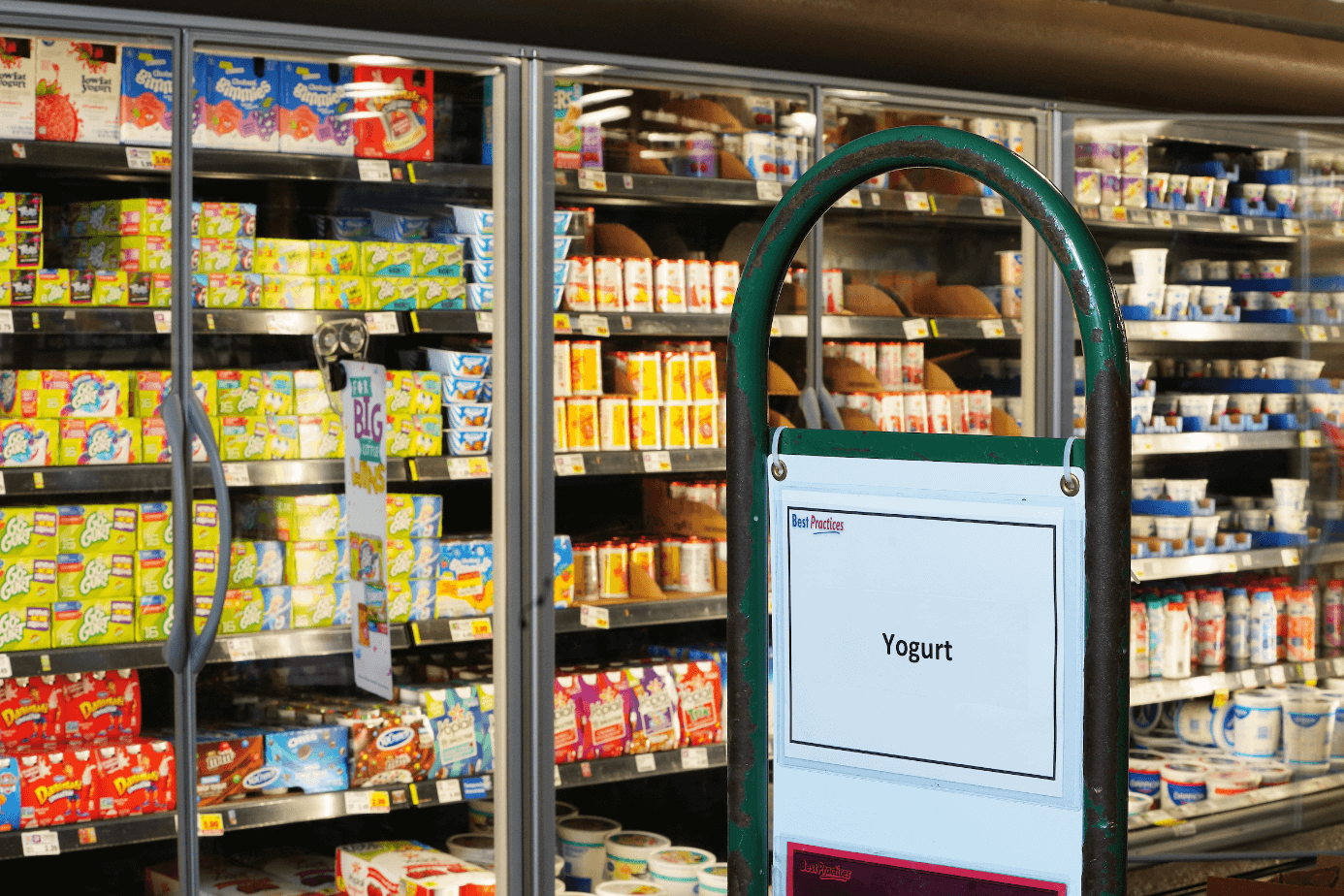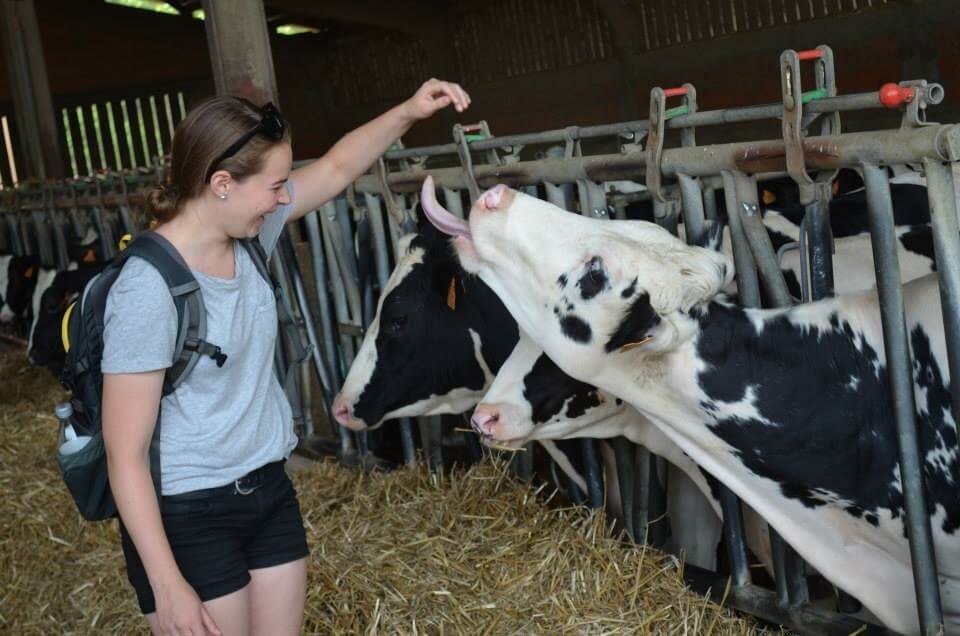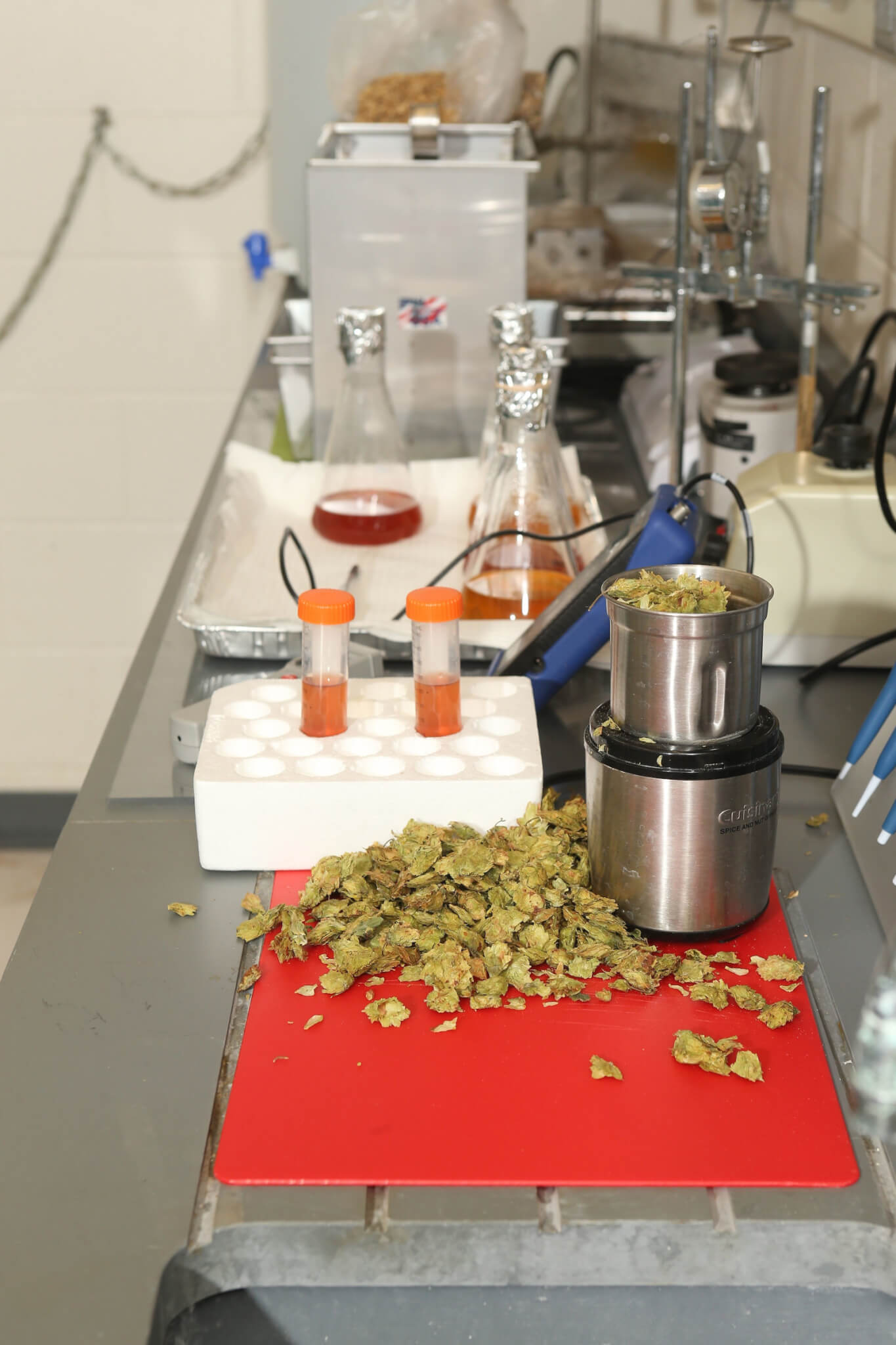Entering its third year, fermentation minor holds major appeal
"I remember microbiology being the most intimidating part of food science when I was a student at Purdue,” recalled Allison Kingery, now a senior academic advisor in the department of food science. “I thought microbiology sounded like something we should be trying to prevent. Now I see it through the positive lens of fermentation.
“When I took on the advisor role, I heard about the concept of introducing a fermentation minor. It had been brewing for a while in the mind of Brian Farkas, the former department head. As courses developed, I gauged interest and excitement from students. The team also spoke with professionals in the industry to see what kind of coursework they would want students in the minor to experience.”

The minor launched in fall 2018. “A lot of people hear about our fermentation minor and assume it’s where you go to learn about beer and wine,” said Kingery. “That’s not untrue, but we have a pretty robust set of courses.”
“There’s a large demand for graduates who know how to expand fermentation into pharmaceutical product applications. We’ve even worked with Eli Lilly, who is looking forward to seeing what the minor will become,” Kingery said.
“There are segments of larger multinational organizations that have a fermentation division and a shortage of applicants with the skillset.”
Mary Schneider graduated from Purdue in 2016 with a degree in food science. While the minor wasn’t available at the time, Schneider took several related courses and now works for Vivolac Cultures, where she helps create bacterial cultures for the dairy industry.

Students in the fermentation minor also have opportunities to gain experience through study abroad trips, as Schneider did. For four weeks, Schneider studied at a university in Toulouse, France. “For the second month, I lived with a host family and worked on their vineyard every day. It was great seeing how things are made and living with a winemaker to gain their perspective.”
“I’m excited students don’t have to be intimidated by microbiology like I was,” said Kingery. “Now they can look forward to it since we help them understand fermentation and the paths it can take them on.”







